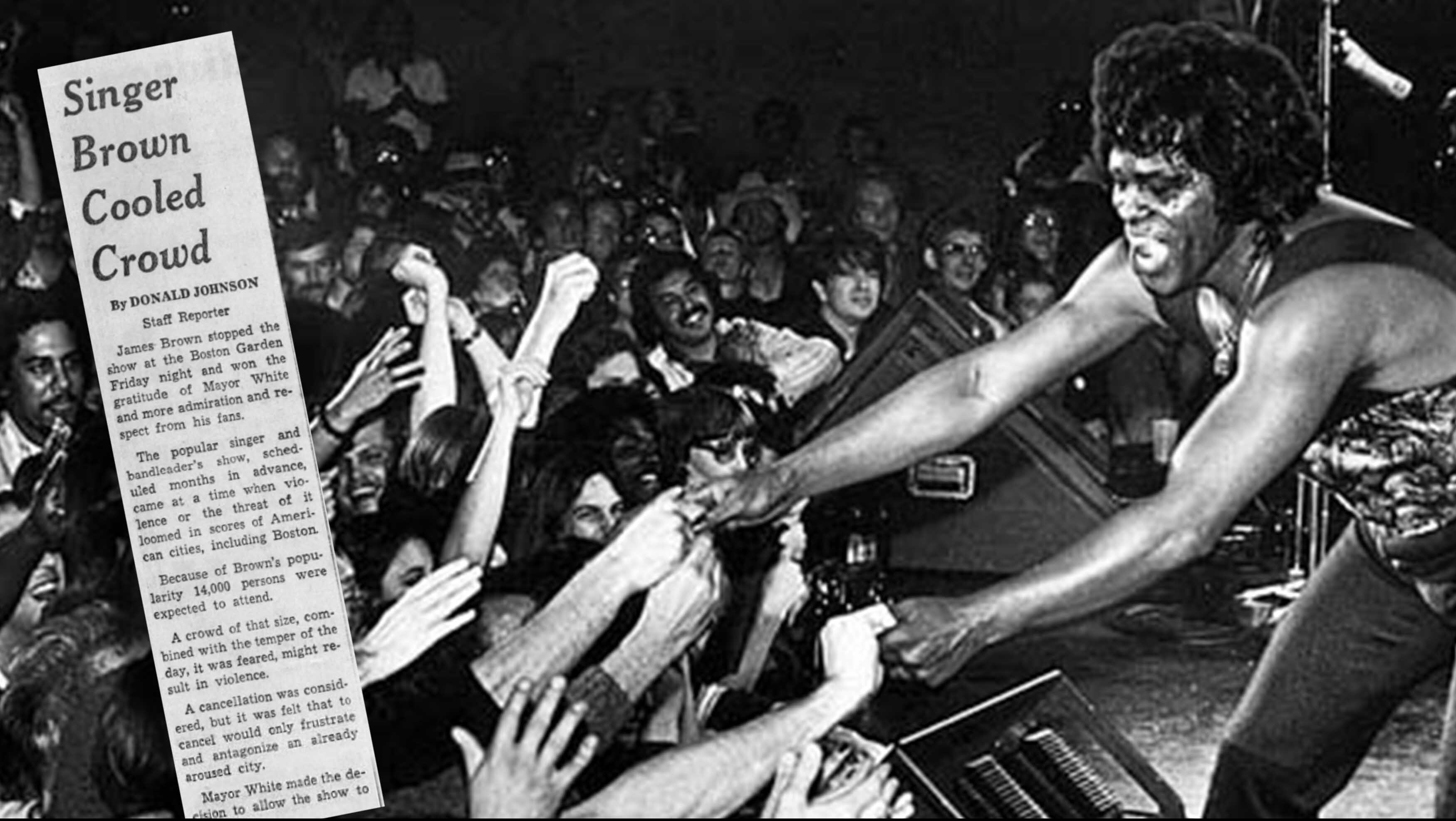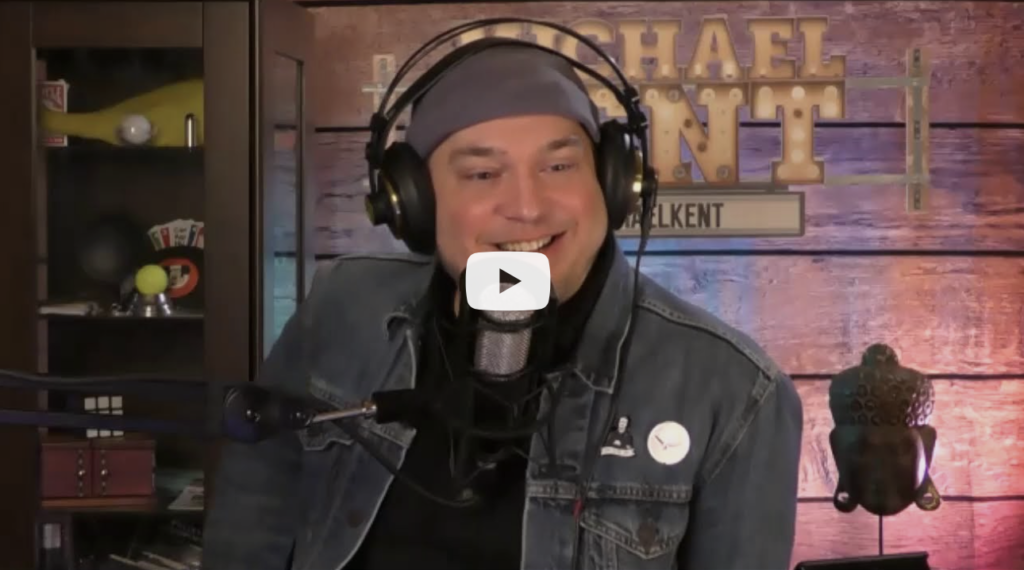James Brown 1968: Healing a Nation’s Wounds -REWIND
Originally released on January 25th, 2021. I recently learned that historians credit a 1968 James Brown concert with saving the city of Boston from riots after the assassination of Dr. Martin Luther King Jr. In this special episode, I tell the story of the Boston Garden Concert and how it almost never happened. Then we quiz my friend Josh Quillen.

There are a few moments in American History where history itself has been inseparably fused with music. Billie Holiday singing Strange Fruit at New York’s Cafe Society in 1939 to highlight racial injustice, Jimi Hendrix’s impromptu Star Spangled Banner at Woodstock that echoed the pain and devastation in Vietnam, or Public Enemy’s Fight the Power – an anthem of confrontation against institutional racism. The 1985 recording of “We Are the World” by a multitude of American artists raised more than $100 Million dollars to fight a Famine in Africa.
But in 1968, this one concert had an immediate – real world affect.
For a decade, Martin Luther King Junior had awakened Americans to the nation’s racial struggle in a way that reached a swath of people much larger than just the Black Community. From Albany, Georgia to Birmingham, Alabama to Washington, D.C., Saint Augustine, Florida and Selma Louisiana, Dr. King had captured the attention of the nation. His “I have a dream” speech in 1963 is regarded as one of the finest speeches in American history and helped the nation put Civil Rights on the forefront of its collective mind, helping push forward the Civil Rights Act a year later.
In the Spring of 1968, King traveled to Tennessee to rally support for the Sanitation Workers’ Union in Memphis. African American workers for the city’s Sanitation Department had been fighting against unequal wages and horrid working conditions. On April 3rd, he delivered one of his most famous speeches. <I’ve been to the mountaintop audio> The following evening, he stepped out onto his balcony and was talking with with a few acquaintances in the parking lot below when a shot rang out.
The aftermath of Dr. King’s assassination was more than mourning and loss. It was anger and outrage, demonstrated by riots, looting and burning throughout major cities in America.
Much like in the 2020 unrest we saw after the killing of George Floyd, people took to the streets in anger at the murder of the Civil Rights Leader. In Washington D.C., in Chicago, in Baltimore, riots erupted in the city immediately after the news broke. In Washington D.C., a crowd of more than 20,000 overwhelmed the police force. 1,200 buildings were burned. In Chicago, 11 people were killed and 500 were injured. In Kansas City, Detroit, New York City, Pittsburgh, cities all over America, crowds of primarily African Americans expressed their anguish in the streets, feeling hopeless that peace could bring the change they desired.
Boston was no different. Being so close to D.C., where some of the largest riots were taking place, officials were worried about the unrest. And just like in 130 other major Urban centers in America, the night of the assassination, there was unrest in Boston. But this episode is about what happened the very next night. We’ll talk about James Brown after a few quick messages.
James Brown had become a household name with hits like Night Train, Papa’s got a brand new bag, I got you and Cold sweat. His songs were consistently ranking on the top of the charts and he was able to fill auditoriums with huge crowds.
The James Brown concert at Boston Garden had been scheduled months before. It was to take place on April 5 – the day after the assassination of Martin Luther King Jr. A crowd of 14,000 was expected. But then, after the murder and the ensuing riots throughout the nation, the concert was almost canceled.
Boston Mayor Kevin White had only come into power 3 months prior thought that the show should be rescheduled. Race relations like mandatory busing and school integration had played a major part in his being elected. The Chief of Police had convinced Mayor White that the concert would just incite further violence with so many citizens of Boston in a heightened emotional state. Tom Atkins was the only African American on the Boston City Council. He told the Mayor, quote “”You can’t cancel the James Brown show because if you do that, you’re going to have 14,000 kids showing up at the Boston Garden finding out by a piece of paper stuck on the door that the show has been canceled and, if they’re not already angry and distraught over the murder of Dr. King, now they’re really going to be mad.” End quote. Already in his short term, the Mayor had made it a priority to encourage the police to treat minor violence and peaceful protests with kindness and understanding rather than the hard-nose police tactics being used in other cities. He worked with community and religious leaders to help calm the crowd. And in discussing the concert with the councilman, they came up with an idea. They would hold the concert, but televise it locally. See, the idea was that by showing the concert on TV, it would keep people at home in front of the television sets rather than in the streets.
James Brown wasn’t so into the idea. By his math, he stood to lose $60,000 dollars by the free televising of the concert due to lost ticket sales. And he was angry. Not seeing the bigger picture, he refused to go on unless the city paid him $60,000. The Mayor almost cancelled the concert again. But again, Atkins convinced the mayor that if the concert didn’t go on, it would cost the city far more than $60,000. The city didn’t pay James Brown $60,000. It’s never been officially released what they did pay him, although there are rumors it was around $15,000. The April 5th concert would happen.
Then there was the issue of how to air it. They convinced WGBH, Boston’s public television station to carry the concert. WGBH was reluctant because if they broadcast the show live, they could end up airing a riot on television. After all, cities all over America were still seeing massive unrest. Just 3-hours before showtime, WGBH finally decided to air the concert live.
With a crowd of only 2,000 instead of the expected 14,000 – the James Brown concert began. When the spotlights came on, it was Councilman Tom Atkins and Mayor Kevin White who stood on stage next to James Brown. James praised the two men, and Mayor White had a few words.
The band started in with a slow, soulful rendition of Frank Sinatra’s “That’s Life” and the concert began. The hardest working man in showbiz, the godfather of soul, Mr. Dynamite, Mr. Please Please Please, James Brown himself played a 3 hour show, often interjecting comments about Dr. King between songs. At one point, fans climbed onstage and started swarming Brown to show their appreciation it looked like things were about to get ugly. The cops that were positioned in front of the stage had their nightsticks ready and started to move in. But this time, it was James Brown himself that cooled the tension. <audio> saying ““Wait a minute, wait a minute now WAIT!” Brown said. “Step down, now, be a gentleman….Now I asked the police to step back, because I think I can get some respect from my own people.” It worked. The crowd quieted and the concert continued.
It was surely hundreds of thousands of people who watched that concert – especially because when it was over, WGBH immediately rebroadcast it again. And again – and again. The streets of Boston were calm. Many historians have called it “The Night James Brown saved Boston.”
This is where it would be amazing to relate this to current times. To talk about the unrest that – 52 years later – we still see today. To somehow wish there was a concert that could heal a nation that still feels wounds of racial injustice, social turmoil, inequality. But I think it’s better just to look at it as what’s possible. For that one night. One concert – one dynamic soul musician, one city councilman and a Mayor who understood helped a city heal.
Review this podcast at https://podcasts.apple.com/us/podcast/the-internet-says-it-s-true/id1530853589
Bonus episodes and content available at http://Patreon.com/MichaelKent
For special discounts and links to our sponsors, visit http://theinternetsaysitstrue.com/deals


